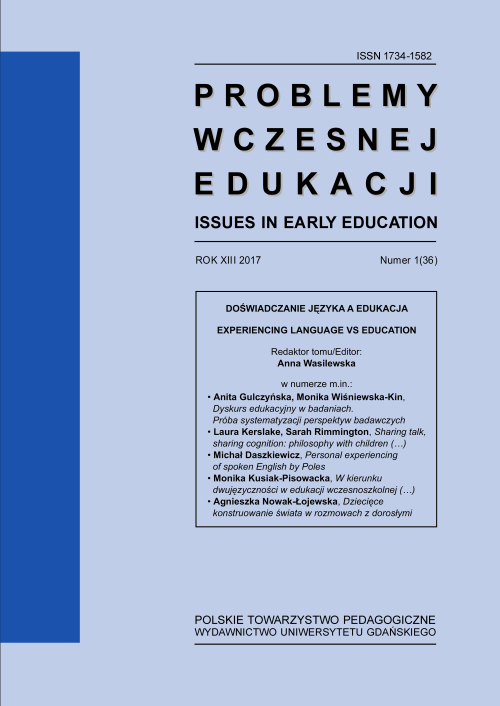Personal experiencing of spoken English by Poles
DOI:
https://doi.org/10.5604/01.3001.0010.1996Keywords:
English, second language, affect, personal educational event, directed utteranceAbstract
The paper addresses applicability of terms and rationale normally associated with early language education to the learning (and articulation) of English by adult Poles. It discusses how grown-ups – supposedly aware of how important speech is for their language success – prove victim to affective obstacles, require the personally – and emotionally-experienced sense of achievement, which implies that the character of their language learning does not depart too far from that of young children. The paper opens with a section concerning the (Polish) national edge of the learning of English and focusing on the learners’ decision not to speak having a personal and crucial character. Then, the issue of affective obstacles is examined theoretically in a discussion on the suitability of specific early education terms for adult language education, and empirically – through a qualitative study of what effect is obtained among Polish grown-ups by using a language teaching method resting on L2 early education terms. It is observed that following a simple teaching procedure in which learners were presented with a set of topic-oriented questions and exemplary answers and then requested to remark (in Polish) on (a four-faceted construct reflecting) how they feel about their productive language learning, an immediate positive outcome is obtained on the affective stratum.

 Academic Scientific Journals
Academic Scientific Journals





